“Monsters exist because they are part of the divine plan, and in the horrible features of those same monsters the power of the creator is revealed.”
― Umberto Eco, The Name of the Rose

The Conception of Merlin – Histoire de Merlin, France (Poitiers), 1450-1455.
BNF, Français 96, fol. 62v
The Middle English Prose Merlin at Cambridge University Library MS Ff.3.11, apparently written near the middle of the fifteenth century, not long before Thomas Malory was composing Morte D’Arthur, is thought the earliest piece of Arthurian literature written in English prose. One section by Robert de Boron settles on the birth of Merlin. The action begins with a parliament of devils out to avenge Christ’s Harrowing of Hell. A story familiar to all Christian theologians and film buffs, the Harrowing of Hell (Latin: Descensus Christi ad Inferos, “the descent of Christ into Hell”) is the descent of Christ into Hell (or between the time of the Crucifixion and his Resurrection. In the depths, Christ brought salvation to all of the righteous who had died since the beginning of the world. Notable figures freed include Adam and Eve, and the righteous men and women of the Old Testament.
Upset by so many souls being released from Satan’s bondage, the demons plot to undo Christ’s work by breeding an antichrist, a figure to perform as their puppet in the world. So a demon squires a virtuous sleeping woman. But the plot is ruined because she is so true of heart and a priest named Blaise baptises the boy at birth. The child is, of course, Merlin, who uses his magical gifts for good deeds.
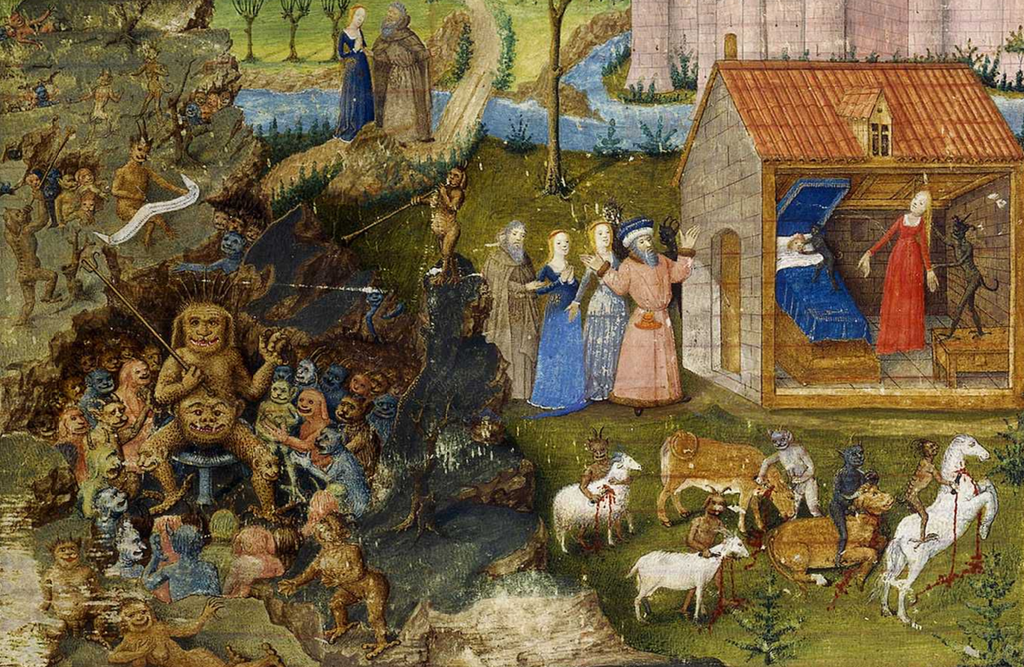
The story of Merlin’s unholy birth as told in Merlin. A prose version illumination by Jean Colombe (c. 1480–1485)
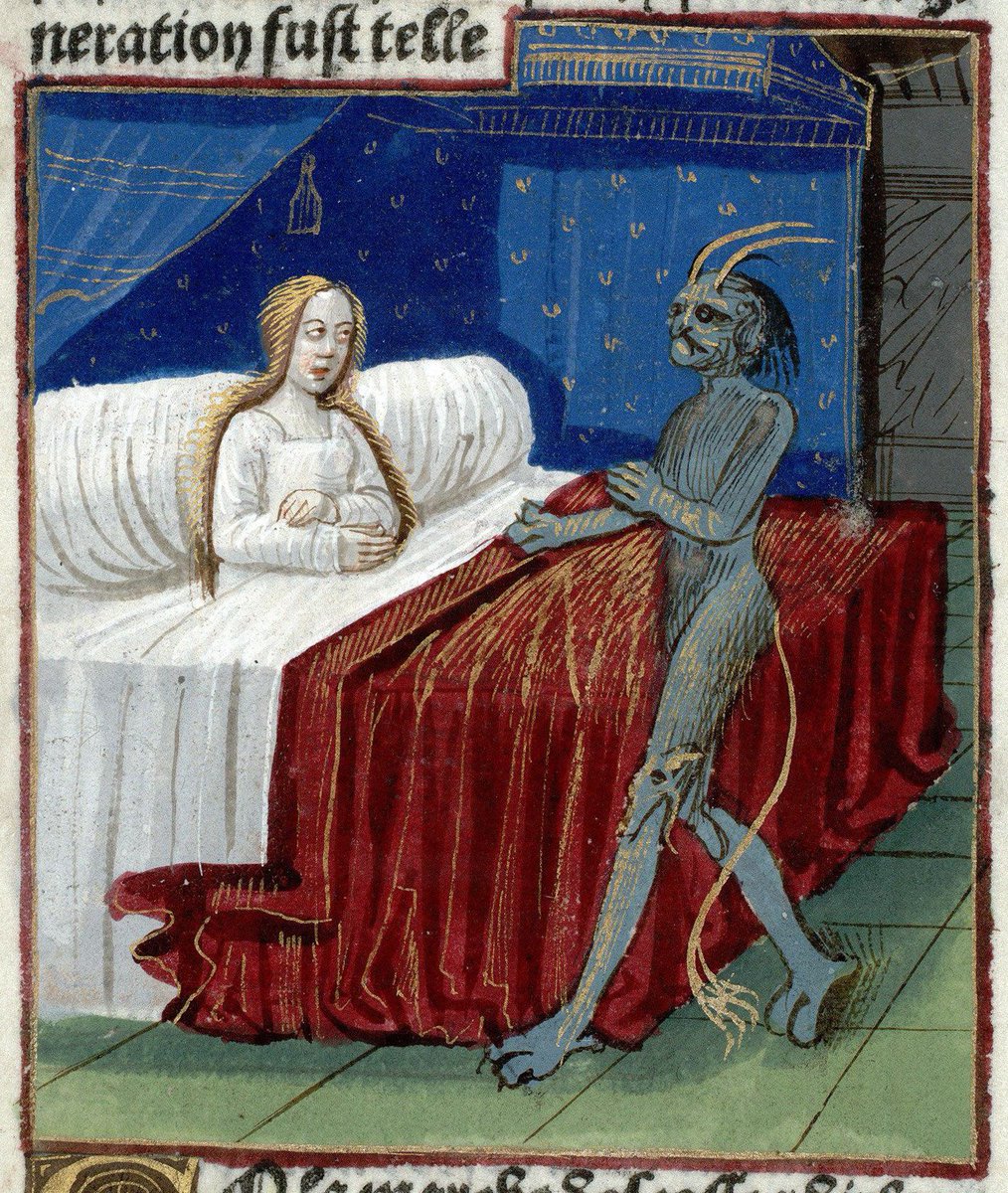
Conception of Merlin in Lancelot en prose (c. 1494)
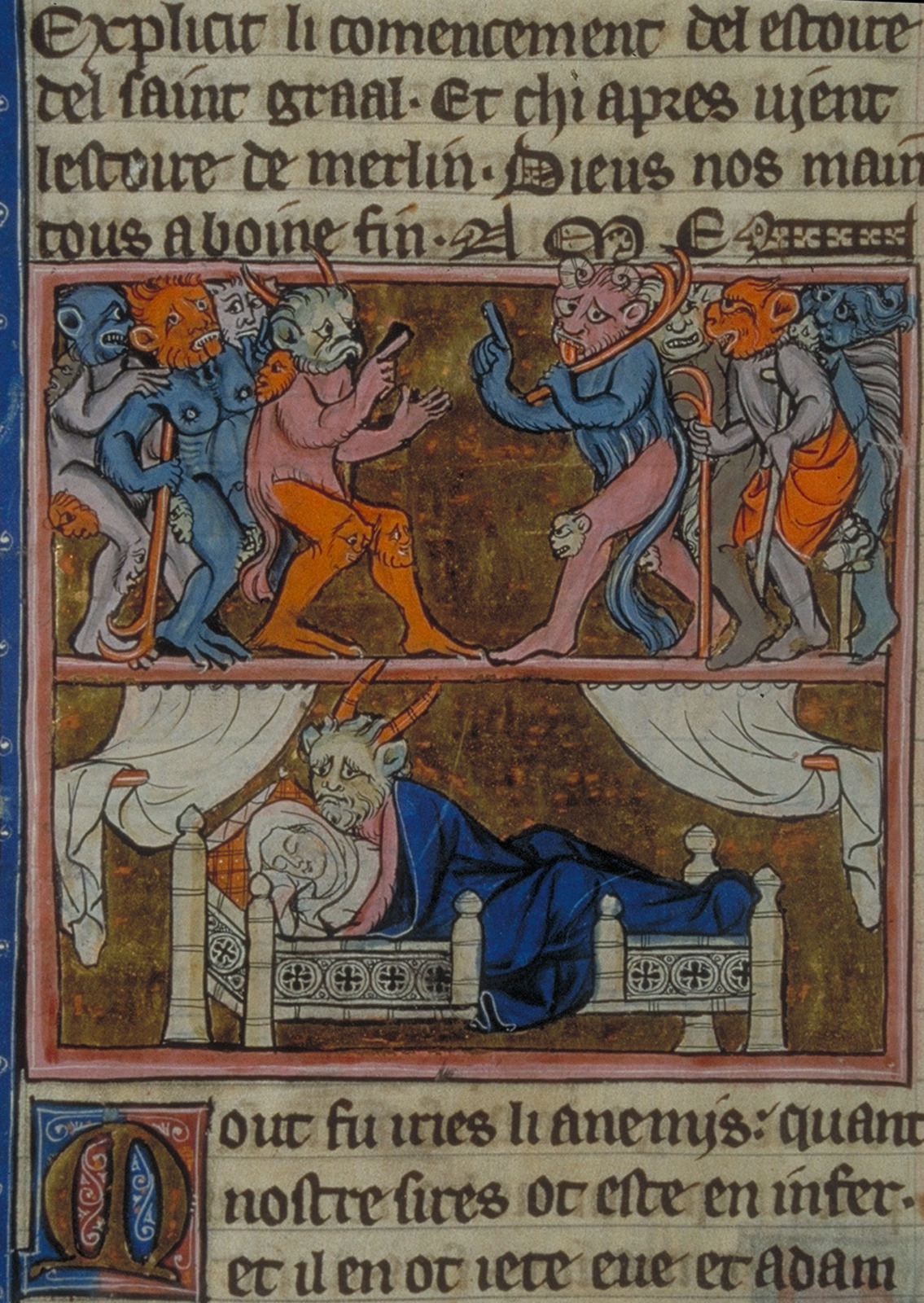
The Conception of Merlin – 2 Robert de Boron, L’Estoire de Merlin, Northern France ca. 1280-1290. Paris, BNF, Fr. 95, fol. 113v
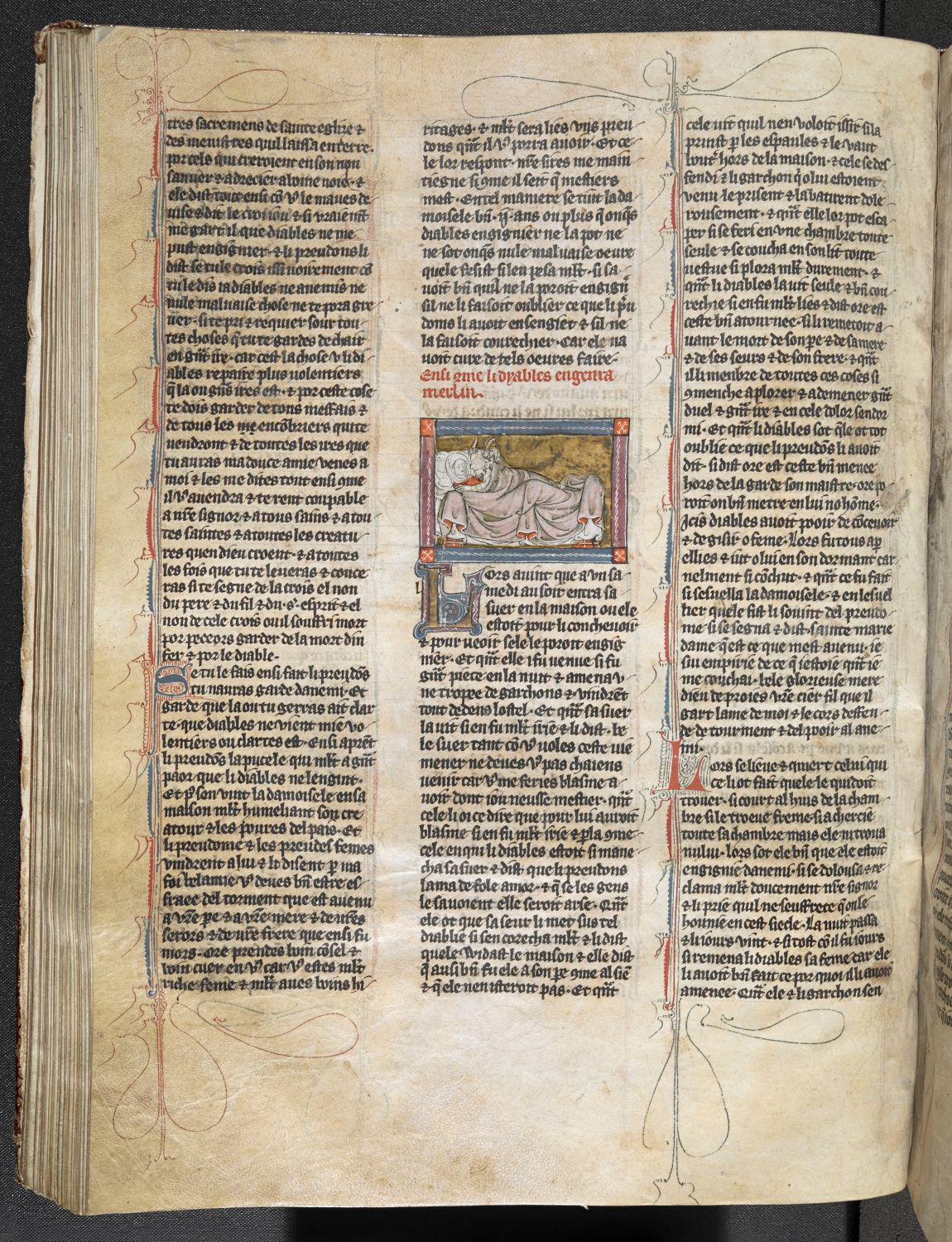
L’estoire del Saint Graal (ff. 1-76); L’estoire de Merlin (ff. 76-216)
France, N. (Saint-Omer or Tournai); c. 1316
Others in Medieval history and art also slept with toe-licking demons:
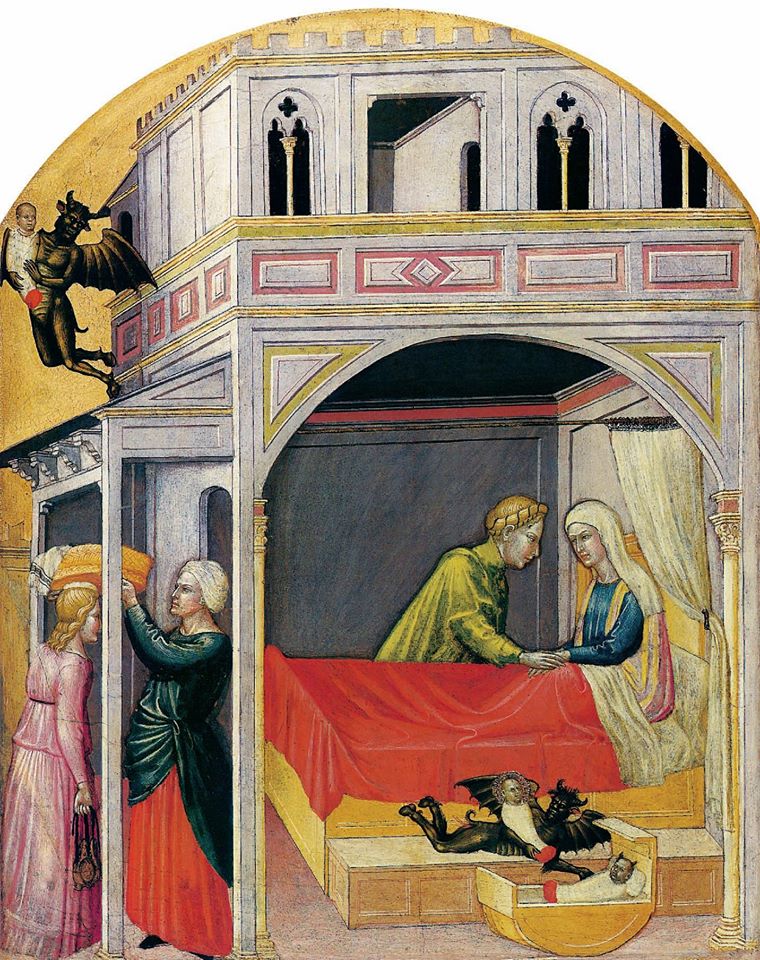
The devil swapping a baby. Artist – Martino di Bartolomeo, Italian , 15th century.
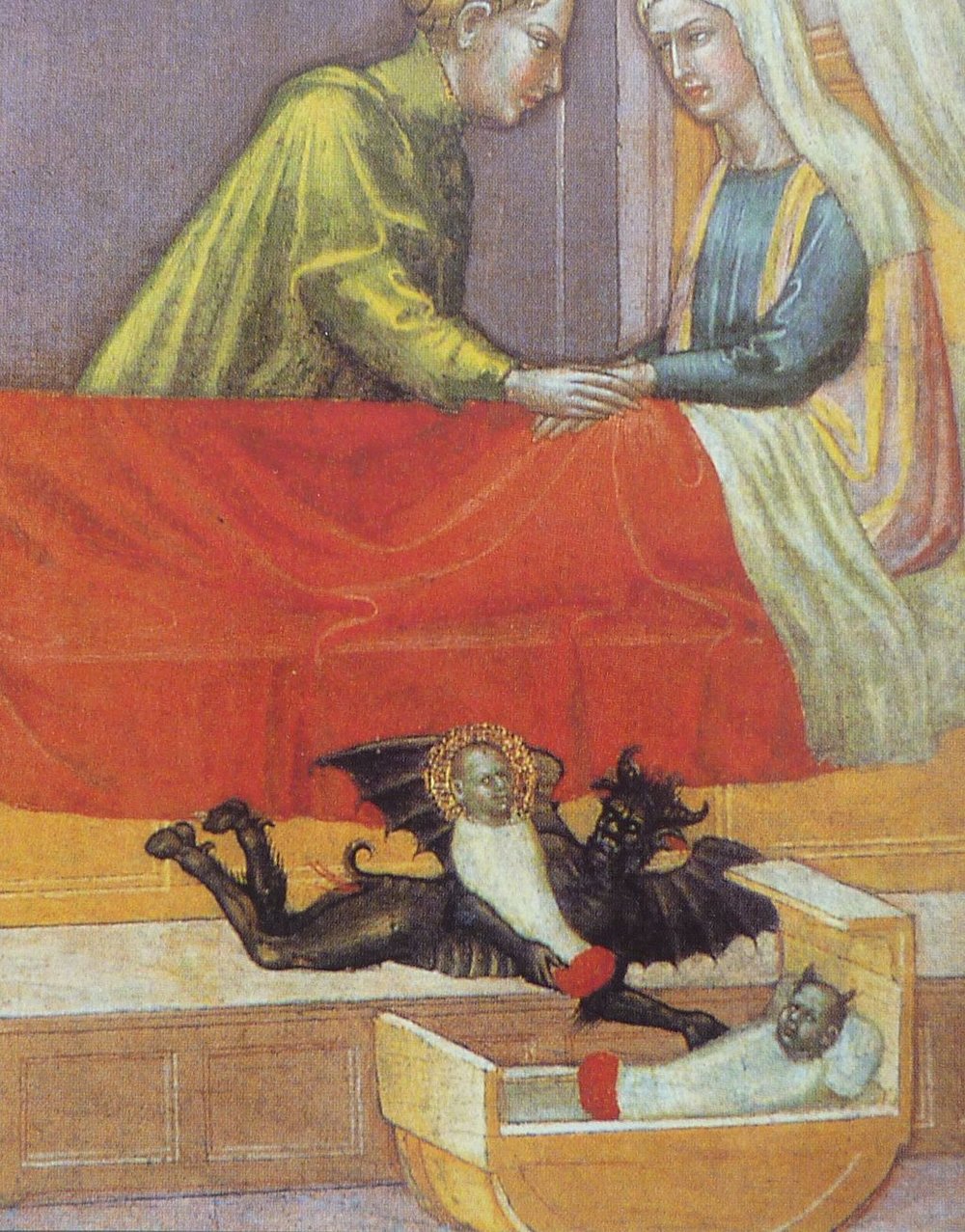
Detail
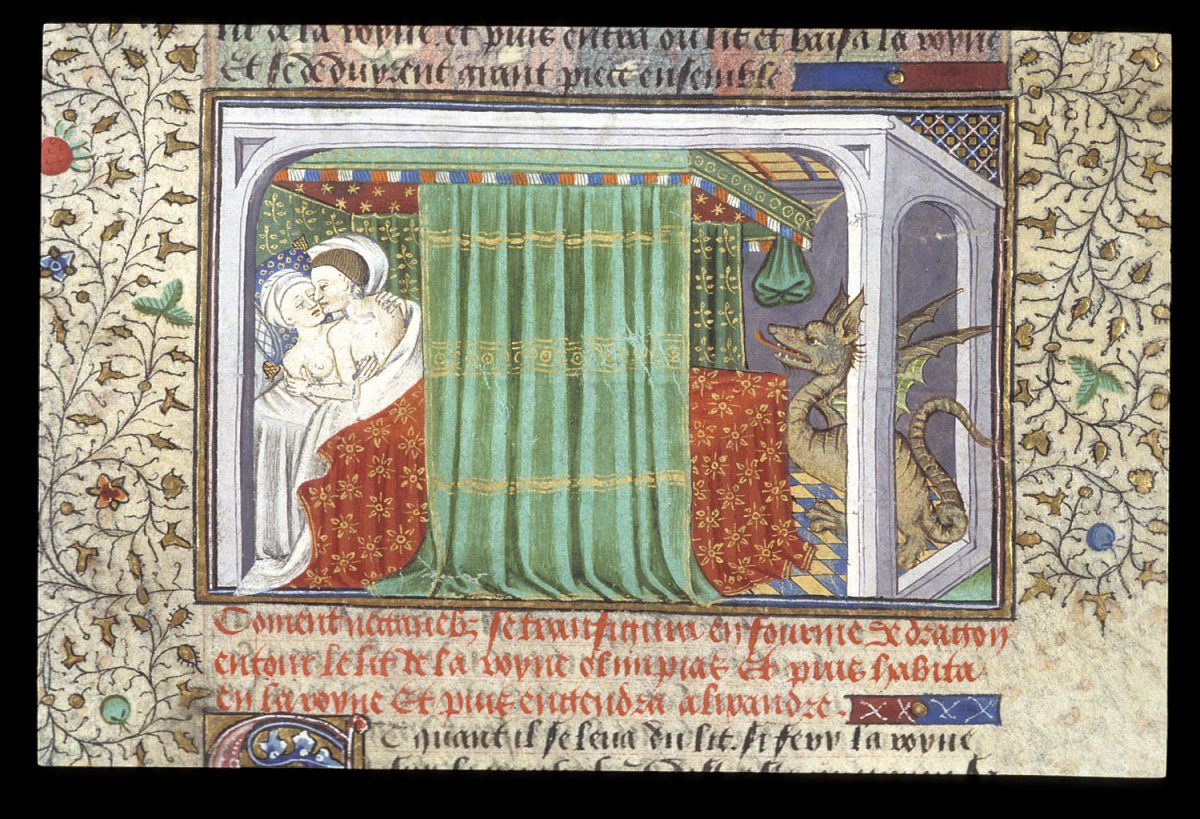
Nectanebus and Olympias : ‘Roman d’Alexandre en prose’ (‘Talbot Shrewsbury book’), Rouen 1444-1445. British Library, Royal 15 E VI, fol. 6r
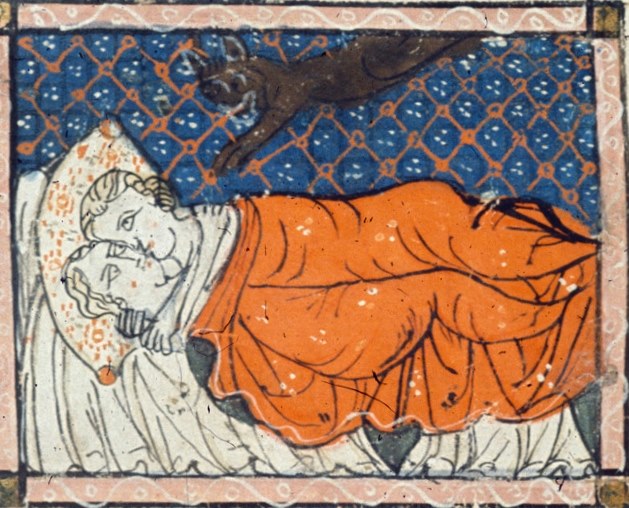
Matfre Ermengaud, Breviari d’Amor , France, S. (Toulouse?) 1st quarter of the 14th century British Library, Royal 19 C I, fol. 203v
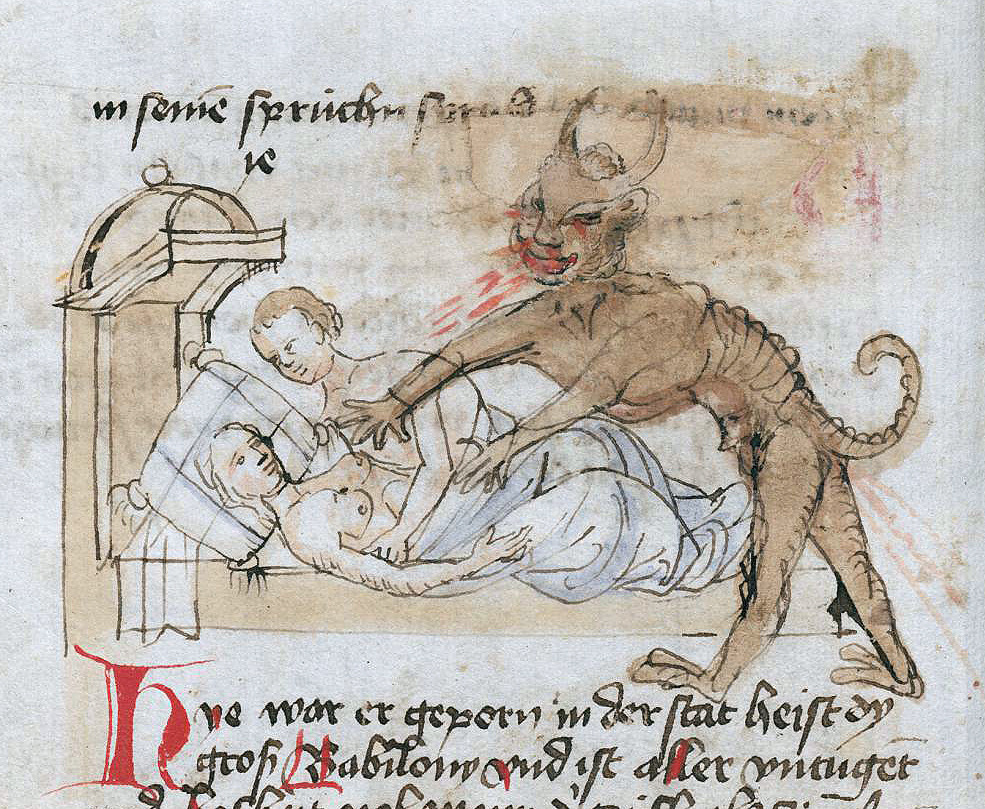
Konstanzer Weltchronik, Germany ca. 1450 Berlin, Staatsbibliothek, mgf 1714, fol. 39v

Devotional Manual
France, S. (Périgord); 1st quarter of the 16th century

Robert Blondel, Des douze Perilz d’enfer, Bourges ca. 1480 BnF, Français 449, fol. 64r
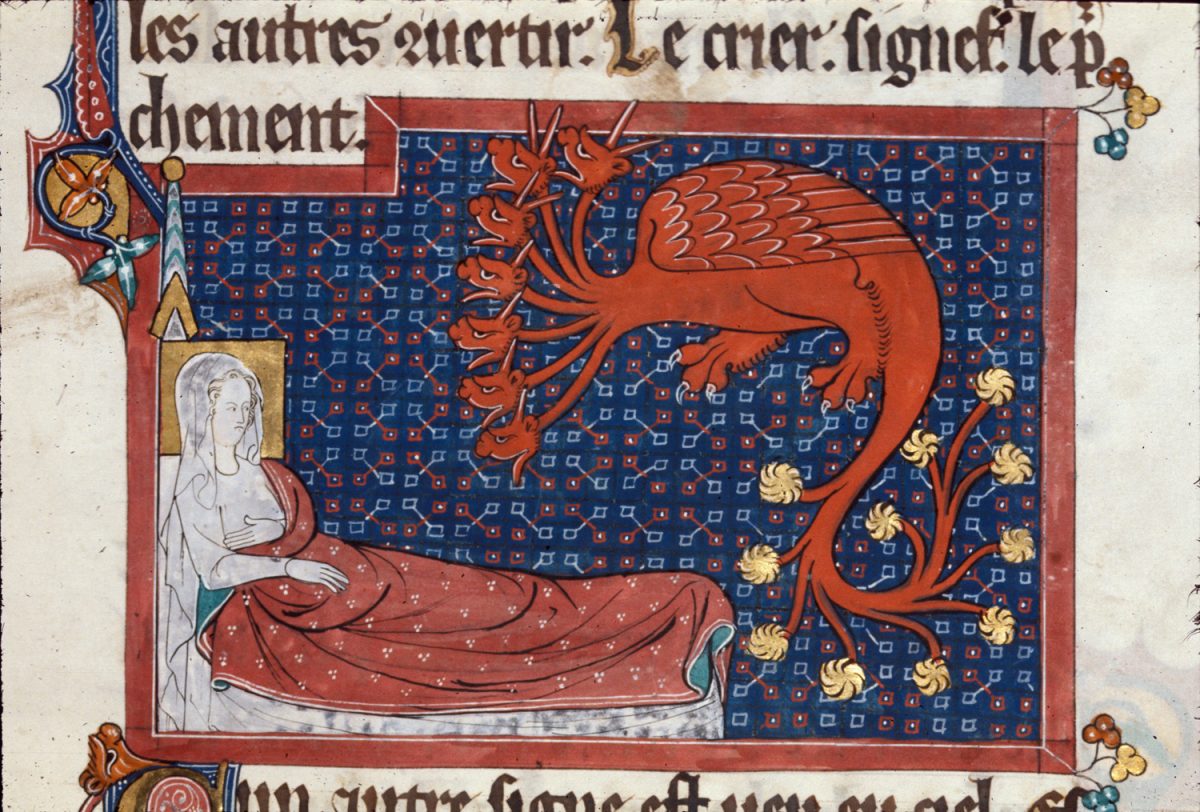
Detail of a miniature of the woman in labour, lying in a bed, and a red dragon with seven heads and ten horns, in illustration of Revelation 12: 2-4.

Ars moriendi, Provence 15th century. Marseille, Bibliothèque municipale, ms. 89, fol. 64r

Demons pulling the soul out Pamplona Bible, Navarre 1197 Amiens, Bibliothèque municipale, ms. 108, fol. 179r

Jean Mansel, La fleur des histoires, Flanders ca. 1480
Bibliothèque de Genève, Ms. fr. 64, fol. 297r
Via: British Library, Stephen Ellcock
Would you like to support Flashbak?
Please consider making a donation to our site. We don't want to rely on ads to bring you the best of visual culture. You can also support us by signing up to our Mailing List. And you can also follow us on Facebook, Instagram and Twitter. For great art and culture delivered to your door, visit our shop.

